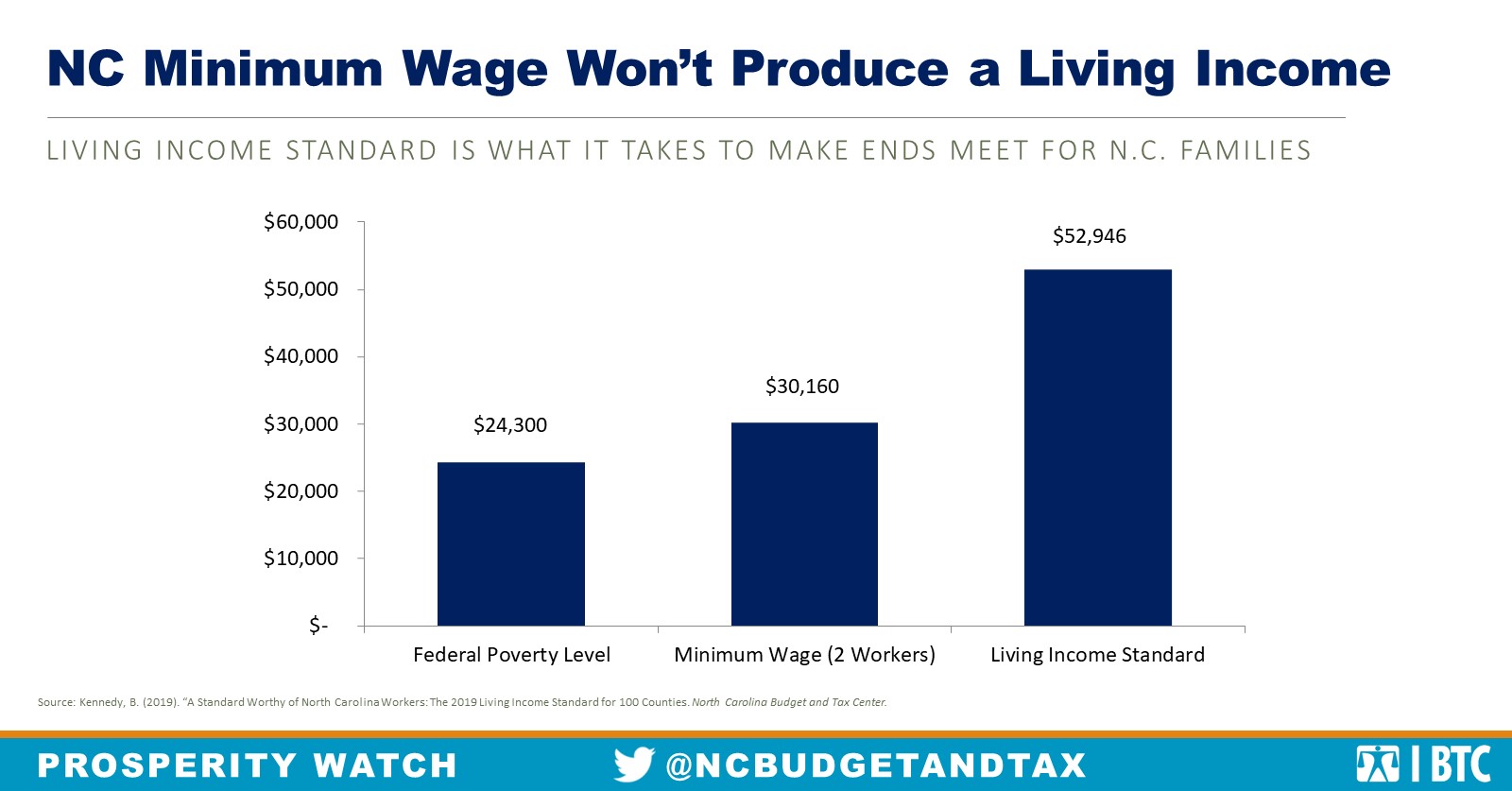The North Carolina Budget and Tax Center’s recently updated Living Income Standard report shows that North Carolina’s minimum wage won’t cover the cost of basic necessities in any county, let alone fast-growing counties where housing and transportation costs are rapidly on the rise. The report provides insight into what families of different sizes need to earn in each of North Carolina’s counties to make ends meet, a far more realistic standard than the current minimum wage or the federal poverty level.

Statewide, a family with two parents and two children would need to bring in nearly $53,000 to pay for the basics, but two those parents would only be paid $30,160 if they worked full time every week of the year at minimum wage. A single parent household with one child would need to earn over $38,000 a year to get by, which translates into an hourly wage of $18.50, more than double the current minimum wage of $7.25.
The report also shows how much living costs vary across our state. In North Carolina’s most prosperous counties like Durham, Wake, and Orange, a family of four needs to earn over $60,000 to meet the Living Income Standard, while that threshold in counties like Tyrrell, Greene, and Richmond is just over $44,000. This further underscores that the minimum wage is inadequate in even North Carolina’s least costly communities, and leaves families in more expensive cities woefully below what it really takes to get by.
The Living Income Standard captures the basic income threshold that families need to pay for the basic necessities of life, including housing, transportation, food, health care, child care, and other expenses. The methodology is geared to reflect the cost of providing only essential needs and, as such, does not include discretionary expenses like entertainment, going out to eat, or enriching experiences like summer camps or music lessons.
The analysis included in this report tells a story that is all too familiar to families across North Carolina; the cost of the basics continues to rise, even if their wages have not. The growing divide between what many families earn and what it takes to put food on the table and keep a safe roof over their heads is one of North Carolina’s most pressing economic challenges, and demands more attention than it often receives.
 Justice Circle
Justice Circle